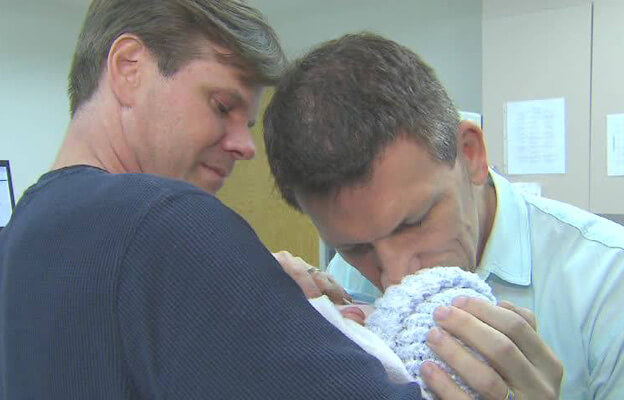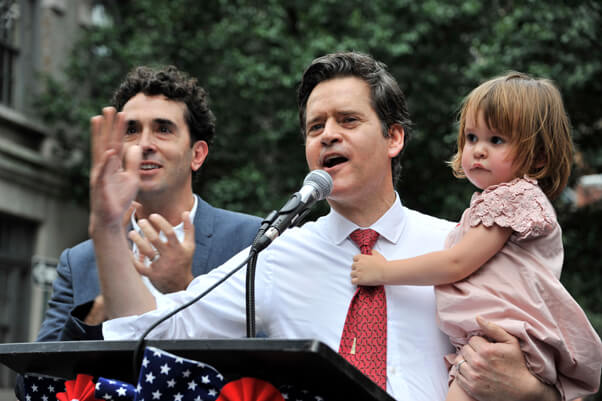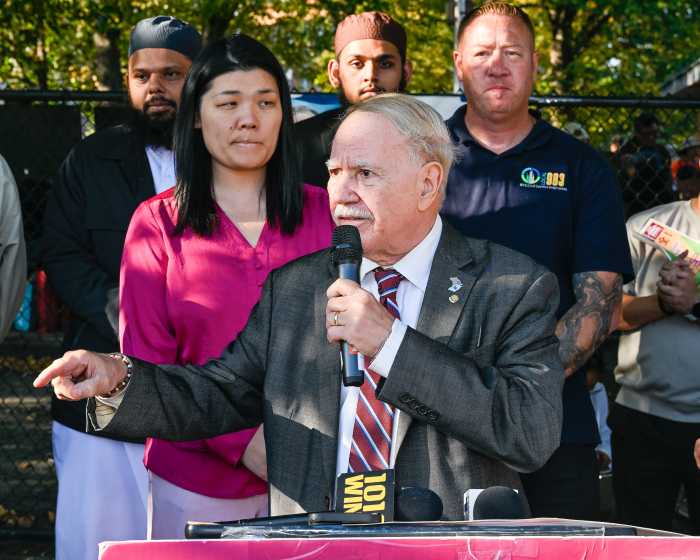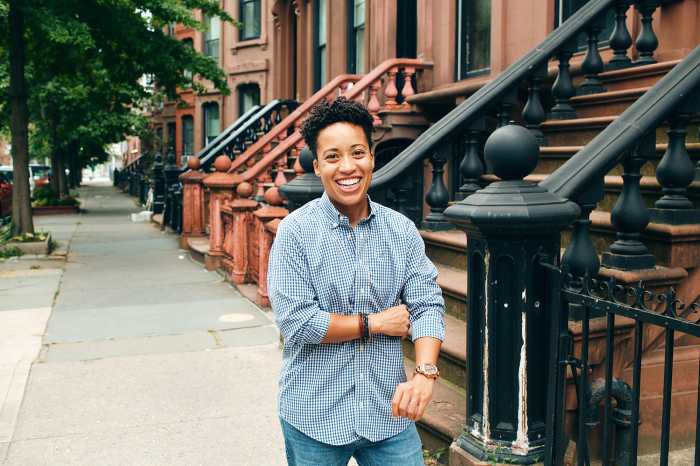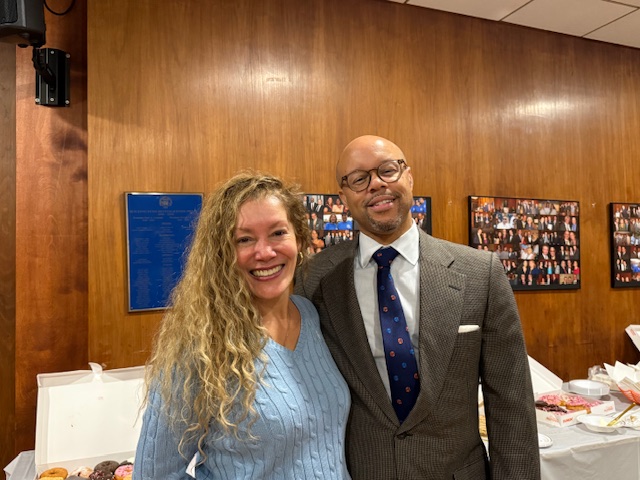A unanimous three-judge appeals panel in Britain issued a decision on November 17 affirming a ruling by Lucy Theis, a family court judge, that a gay male couple should have residential custody of a child born as a result of an unenforceable gestational surrogacy agreement they had entered into with a married woman who sought to keep the child.
Although the appeal had been presented as “involving novel issues” about potential conflicts between different parenting statutes, wrote Lord Justice Andrew McFarlane of the appeals panel, “on examination these issues fell away and the argument ultimately boiled down to the question of whether the Judge erred on her evaluation of the evidence.”
The gay couple, identified only as A and B, entered into a surrogacy agreement with a “heterosexual married couple,” identified as C and D, who had five children. C, the wife, had been a gestational surrogate twice before. The parties met online in April 2015 and signed the surrogacy agreement in August of that year. The woman and one of the gay men traveled to a clinic in Cyprus, where his sperm was used to fertilize a donated egg, which was then implanted in the gestational surrogate. The woman, then, has no genetic relationship to the child.
UK court denies gay couple legal parenthood, but child will live with them
The relationship between the parties deteriorated during the pregnancy to the point where communication stopped in March 2016. According to the opinion by Family Court Justice Theis, “At some point in late March 2016, [the gestational surrogate and her husband] sought legal advice and decided that they were not going to hand over the child to [the gay couple], as had been agreed between the parties as recorded in the agreement they signed.” At this point, the gay couple were trying to contact the surrogate but got no response. The woman gave birth in late April, but due to complications she and the infant remained in the hospital until May 6.
The day before the birth, a lawyer retained by the woman and her husband wrote to the gay couple telling them they were not prepared to follow the surrogacy agreement and would not be giving their consent to a parental order on behalf of the child’s biological father. The men only learned of the birth on May 10, by which time the woman and her husband had already registered the birth with the name they had chosen rather than that preferred by the biological father and his partner. The gay couple then filed suit, resulting in a temporary “shared care arrangement” between the two sides pending the family court’s disposition of the case.
Justice Theis appointed a guardian to represent the child’s interests in the proceedings. Since the surrogate did not cooperate with a parental order on behalf of the biological father, she and her husband, presumed under law to be the father of a child born to his wife, are considered the child’s legal parents.
Surrogacy agreements are not enforceable under English law. The intended father can only obtain a parental order designating him as the legal parent with the cooperation of the birth mother and her spouse, if any. The main question for the court was whether the child should reside with the surrogate and her husband or with the biological father and his partner — in light of the facts of the child’s conception, the subsequent bonding through the shared care arrangement, and one of the gay men’s claims as the biological father.
The lawyer for the surrogate and her husband argued that “as a matter of law,” they had a right “to change their minds and keep” the infant, McFarlane wrote. The judge found that “It is undoubtedly correct that a surrogate mother has the right to change her mind,” but added that “tells one nothing about what the best welfare arrangements for the child will be after birth. That will depend on the circumstances.”
The guardian appointed for the child testified that the gay couple were better placed to meet “the more complex emotional needs of a child born in these circumstances” than were the surrogate and her husband. The two men, it appeared, were open to allowing the child to have a relationship with the surrogate and her husband, while the reverse was not true. The guardian recommended that the child live with the biological father and his partner but have visiting contact with the surrogate and her husband under a set schedule.
Judge Theis accepted this recommendation.
The appeals panel rejected the surrogate’s argument that placing the child with the intended gay parents was “equivalent to the making of a parental order,” which would have left “the surrogate with no rights, and no right to apply to court. It would not provide for ongoing contact.” Theis, the panel pointed out, explicitly recognized the ongoing role of the surrogate and her husband as legal parents of the child.
The appeals panel concluded its opinion with observations on two matters.
“Firstly, we note that surrogacy is a complex area, ethically and legally, and that there are no internationally agreed norms,” Justice McFarlane wrote, endorsing Theis’ observation that it would be desirable for the government to enact “a properly supported and regulated framework to underpin arrangements of this kind.” The lack of any legal status for surrogacy agreements — which, for example, remain illegal under New York law — is a continuing source of difficulties, since the legal template for dealing with custody disputes between divorcing parents does not easily fit the situation when surrogacy arrangements break down during pregnancy.
The court also devoted a final paragraph to chastising the gay couple for “most unwisely and unaccountably” resorting to social media to discuss their situation, which led to a restraining order barring any “further publicity.” Preserving confidentiality in contested custody cases is generally deemed to be in the best interest of the child.
Though the intended gay parents will now have custody of their child, the result of this case excited some startled comment from the LGBTQ press in the UK since the surrogate, who has no genetic relationship to the child, and her husband continue as legal parents. The gay couple become, in effect, de facto parents. The court’s call for the government to establish an appropriate statutory legal framework to govern such situations is heartfelt.



